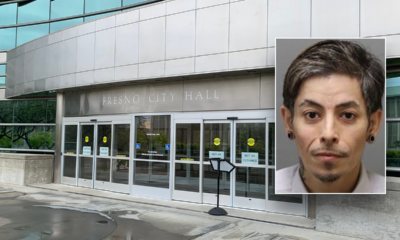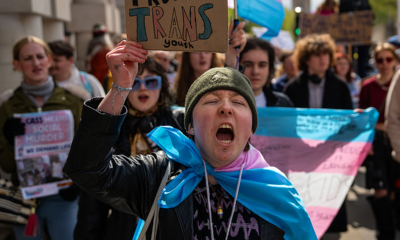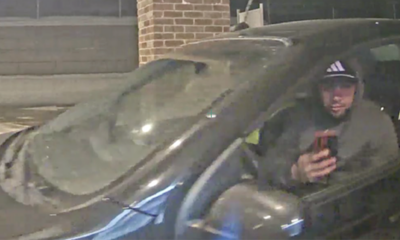Minneapolis, MN
Park workers vote down latest contract offer from Minneapolis park board
Striking Minneapolis park workers on Friday evening overwhelmingly rejected the latest contract offer from the Minneapolis Park and Recreation Board.
Liz Xiong, a spokesperson for Laborers’ International Union of North America Local 363, said that 91% of the ballots cast rejected the offer. Just under half of the union’s nearly 200 full-time, dues-paying members turned out for the vote, held at Minnehaha Regional Park.
Xiong said Friday’s vote site was chosen because the Park Board insisted the union bring the latest offer to a vote and a number of union members were already present at Minnehaha Falls for a demonstration.
“The Park Board doesn’t have any jurisdiction to govern or interfere with the way a local union chooses to do its business,” Xiong said.
The strike entered its third week Thursday after negotiations between the two sides again broke down Tuesday night. Workers have demanded higher pay, improved benefits and safety precautions.
Xiong said the two sides have agreed on wage adjustments, but that several clauses she called “anti-worker” still remain in the Park Board’s offer. One such clause, she said, would allow management to withhold step increases in employee pay at its discretion.
“That defeats the whole purposes of bargaining a contract,” she said.
The Park Board said Friday that 46% of park workers have not been working during the strike.

Minneapolis, MN
Family of Minneapolis brothers killed by cousin says their deaths were preventable:

A Minneapolis family is struggling to make sense of a tragedy that has left them heartbroken.
Family tells WCCO 14-year-old Xavier Barnett and 23-year-old Akwame Stewart were killed Monday.
The brothers were very different, but equally loved. Barnett was a good student and athlete. Stewart was a painter, creative and thoughtful. Two brothers, loved and full of promise, gone.
Police say the accused shooter is their cousin, 23-year-old Eddie Duncan.
Court records show Duncan was released on bail Monday on charges of fleeing law enforcement and possession of a gun modified with an “auto sear switch.”
Court records also show Duncan was ordered to undergo a psychological evaluation, but not until next month, on March 24.
Deasia Freeman, Barnett and Stewart’s sister, says this loss could have been prevented.
“They all failed us. We got two innocent lives gone for no reason. Didn’t do nothing to nobody,” Freeman said.
Family members say the system and Duncan’s family let them down.
Freeman says Duncan’s family saw the warning signs and still bailed him out
“If you knew this man was thinking like this, y’all should have kept him in there and he should not even have bail,” she said.
The Hennepin County Attorney’s Office says they noted Duncan was a public safety risk and asked for a high bail, much higher than a typical request.
“In Minnesota, there is a constitutional right to bail, and the bail amount is set by the Court. Our office noted a public safety risk with Mr. Duncan and asked the judge to set bail at $70,000, or $35,000 with conditions; both of which are higher than we would typically request in this scenario. The judge set bail in that amount. Mr. Duncan posted $35,000 bail with conditions of release, as is allowed under the Minnesota Constitution, and was released from custody. Our thoughts are with all those impacted by yesterday’s violence. This was a terrible tragedy for this family and our community,” a spokesperson for the Hennepin County Attorney’s Office said.
For Freeman and her family, the hardest part isn’t just the legal process but living each day without their brothers.
Even in the heartbreak, she says the memories of the good days, the laughter and love they shared will carry them through.
“I wish I could get just one more phone call from them asking me where I’m at,” Freeman said as tears rolled down her face.
Court records confirm Duncan left the scene of the crime and fled to nearby Brooklyn Center. There, a search warrant says Duncan “fired a gun at officers, striking two squads,” when police arrived. That’s when officers returned fire, shooting and killing him.
Three officers have been placed on critical incident leave as the Minnesota Bureau of Criminal Apprehension leads the investigation into Duncan’s fatal shooting.
Minneapolis, MN
First-of-Its-Kind Photography Festival Comes to Minneapolis | Minnesota Monthly

MODE by Flickr
The Twin Cities has long been a hotbed of creative inspiration and artistic storytelling—from world-class cultural institutions to large-scale art and film festivals that propel emerging makers and creators into the spotlight. But, for the first time, local photographers are primed to receive a multi-day that is uniquely their own—geared toward all things visual, digital, and candid.
Today, global photo-sharing platform Flickr announced the launch of MODE by Flickr, a three-day photography festival set to take place Sept. 18-20—right in the heart of Minneapolis. A first-of-its-kind event, the inaugural lineup will gather some of the biggest names inartvisual media, from Emmy-nominated director and National Geographic photographer Keith Ladzinski to renowned culinary photographer Penny De Los Santos, as well as sponsorship support from global media companies including Fujifilm, HOVERAir, and more.
Whether attendees are coming to network, learn, or simply, admire, MODE will feature a variety of welcoming spaces designed to foster a dynamic exchange of creative energy. Expect immersive workshops led by industry legends, hands-on demonstrations, mind-expanding exhibitions, and special programming designed by Black Women Photographers’ Polly Irungu and Inside Out Project.
“MODE is photography in motion—alive, interactive, and deeply rooted in community,” said Ben MacAskill in a prepared statement, President and COO at SmugMug and Flickr. “For more than 20 years, Flickr has brought the world’s photographers together online. Now, we’re bringing that spirit away from devices and connecting in the real world with a festival built for creativity and the future of photography and visual arts.”
Designed around seven thematic pillars, MODE aims to bring the full spectrum of photography to life—uniting world-shifting storytelling, emerging tools, business insights, motion-driven media, cultural diversity, analog processes, and environmental responsibility. These seven pillars will float through each diverse experience, from live portrait shoots, tech demos, and editing workshops to photojournalism panels, film screenings, and instant-film activations.
Flickr’s choice of Minneapolis as its launchpad feels telling of an overarching alignment of values—the city a mirror for MODE’s core mission of celebrating creativity and community while prioritizing diversity, inclusion, and accessibility. To support this mission, the festival will be equipped with accessible venues, thoughtful sustainability measures, diverse programming, and a careful artist selection process that prioritizes representation and artistic vision.
Tickets are available now, starting at $300 for Flickr Pro members, and between $330 and $660 for general admission and VIP passes. For more information on ticketing, and updated programming announcements, visit modefestival.com.
Minneapolis, MN
LETTER: Minnesota and Minneapolis created the ICE mess

In response to Tom McDonough’s recent letter regarding ICE in Minneapolis and the impending doom that could be coming our way from operation “Metro Surge,” I offer a different perspective.
I was born, raised and lived in the great state of Minnesota for many years. Fortunately, I was raised outside of the metropolitan area in a very conservative, rural setting. It was far away from the Twin Cities cesspool that exists amongst the Land of 10,000 Lakes.
I travel home to see family and friends often. Prior to 2020, flying into Minneapolis and taking light rail was comfortable, easy, safe and convenient. However, after COVID, the George Floyd riots and now the Metro Surge fiasco, I will no longer feel safe in Minneapolis. I pretty much despise travelling to my home state any longer.
The state of Minnesota and the city of Minneapolis created this mess, and they now are trying to blame the U.S. government for it all. Venture outside of the Twin Cities area and you will find that most of the rural folks see it for what it is and are waiting for accountability and change. They don’t believe the hype, finger-pointing and misinformation from afar. Nor do I.
-

 World1 day ago
World1 day agoExclusive: DeepSeek withholds latest AI model from US chipmakers including Nvidia, sources say
-

 Massachusetts2 days ago
Massachusetts2 days agoMother and daughter injured in Taunton house explosion
-

 Montana1 week ago
Montana1 week ago2026 MHSA Montana Wrestling State Championship Brackets And Results – FloWrestling
-

 Oklahoma1 week ago
Oklahoma1 week agoWildfires rage in Oklahoma as thousands urged to evacuate a small city
-

 Louisiana4 days ago
Louisiana4 days agoWildfire near Gum Swamp Road in Livingston Parish now under control; more than 200 acres burned
-

 Technology6 days ago
Technology6 days agoYouTube TV billing scam emails are hitting inboxes
-

 Denver, CO2 days ago
Denver, CO2 days ago10 acres charred, 5 injured in Thornton grass fire, evacuation orders lifted
-

 Technology6 days ago
Technology6 days agoStellantis is in a crisis of its own making



















